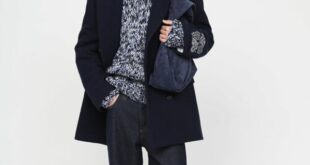Camp: A Deeper Look Into Its Definition and History
The term “camp” is often used in popular culture today, especially among Gen Z and in reference to events like the 2019 Met Gala. However, its true meaning and origins are not widely understood. Queer communities, in particular, have a deep history with camp, and American writer Susan Sontag played a significant role in defining it in her seminal 1964 work, “Notes on ‘Camp.'”
So, what exactly does camp mean? According to Michael Mamp, an associate professor at Louisiana State University, it is an aesthetic or expression of “inauthentic visual cues.” In simpler terms, camp is not deliberately intentional; it is a sincere expression that often comes across as over-the-top or exaggerated to those around you.
Sontag describes camp as a particular style and an appreciation for the exaggerated and the “off.” It is the love of things that are not what they seem to be. Wesley Breed, a fashion influencer and student at New York University, describes camp as “so bad it’s good.” It is an attempt at seriousness that fails, but in that failure, something unique and captivating is created.
Camp in Fashion
Camp is most clearly seen in the world of fashion. One example is the runway shows of the fashion brand Comme des Garçons, which often feature avant-garde and over-the-top designs. These designs may appear more like art projects than traditional high fashion to the average viewer. Rei Kawakubo, the head of Comme des Garçons, has a vision for fashion that is somewhat comical and playful, creating a new aspect of seriousness that resonates with many.
Gen Z frequently applies the term “camp” to celebrities who embody an eccentric or outlandish style. Examples include Katy Perry’s bubblegum sweet, plastic-laden dresses, Lady Gaga’s meat dress, and even early 2000s runway looks. The 2019 Met Gala, with its theme “Camp: Notes on Fashion,” attempted to explore camp through the outfits of its attendees. However, some argue that it missed the mark by not adequately centering the LGBTQ+ community, which has been a vital part of camp expression for centuries.
The Queer Roots of Camp
Camp has roots in queer fashion, art, and cultural expressions. Sontag points to early examples of camp in mannerist art of the late 17th and early 18th centuries, as well as in English literature and architecture of that era. The Palace of Versailles, with its exaggerated and whimsical designs, is another early example of camp aesthetics.
However, the history of camp goes even deeper within queer communities. Mamp, who teaches a class on LGBTQ+ history through fashion, explains that camp was historically linked to personal truths that were seen as inauthentic by others. Queer individuals in the early 20th century often dressed or acted in ways described as “camping it up.”
Trans activists Marsha P. Johnson and Sylvia Rivera, for example, played crucial roles in the 1969 Stonewall Riots. Their expressions of identity were seen as “campy” at the time but were genuine and sincere expressions of who they were. Sontag even notes the affinity and overlap between camp and homosexuality in her essay.
Historically, camp culture within gay male communities has adopted icons who may not have identified as queer themselves but were naturally camp. Judy Garland, Joan Crawford, Barbra Streisand, Cher, and Bette Midler are examples. These performers poured their most sincere emotions and energy into their expressions, creating a unique combination of seriousness and campiness.
The Evolving Definition of Camp
Today, the term “camp” is also used as slang to describe something over-the-top, eccentric, or striking. It has become a figure of speech, with its meaning often derived from context. Fashion influencer Wesley Breed created a TikTok video to explain the history and definition of camp to a younger audience, emphasizing its versatility and evolving nature.
Mamp agrees with Sontag’s notion that it is easier to define what isn’t camp rather than what is. The meaning of camp continues to evolve and adapt to different contexts and individuals.
In conclusion, camp is an aesthetic and cultural expression that originated in queer communities and has since expanded to various facets of popular culture. Its essence lies in the sincere and often exaggerated expressions that defy conventional expectations of taste and style. While the 2019 Met Gala attempted to highlight camp, it fell short of fully capturing its historical connection to the LGBTQ+ community. Camp remains an essential and vibrant part of queer culture and continues to shape the world of fashion, art, and self-expression.
 Mind Uncharted Explore. Discover. Learn.
Mind Uncharted Explore. Discover. Learn.


